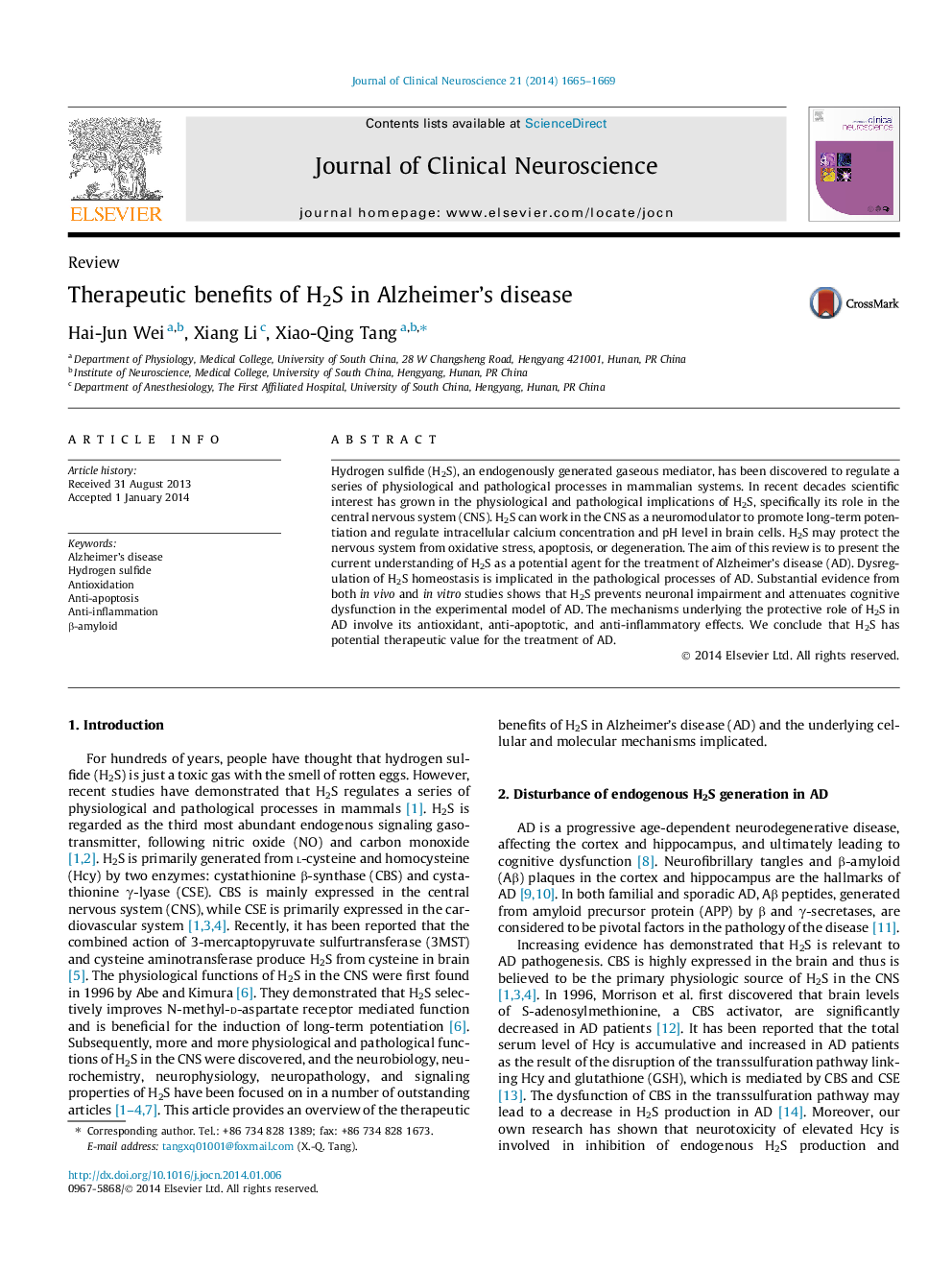| Article ID | Journal | Published Year | Pages | File Type |
|---|---|---|---|---|
| 3059328 | Journal of Clinical Neuroscience | 2014 | 5 Pages |
Hydrogen sulfide (H2S), an endogenously generated gaseous mediator, has been discovered to regulate a series of physiological and pathological processes in mammalian systems. In recent decades scientific interest has grown in the physiological and pathological implications of H2S, specifically its role in the central nervous system (CNS). H2S can work in the CNS as a neuromodulator to promote long-term potentiation and regulate intracellular calcium concentration and pH level in brain cells. H2S may protect the nervous system from oxidative stress, apoptosis, or degeneration. The aim of this review is to present the current understanding of H2S as a potential agent for the treatment of Alzheimer’s disease (AD). Dysregulation of H2S homeostasis is implicated in the pathological processes of AD. Substantial evidence from both in vivo and in vitro studies shows that H2S prevents neuronal impairment and attenuates cognitive dysfunction in the experimental model of AD. The mechanisms underlying the protective role of H2S in AD involve its antioxidant, anti-apoptotic, and anti-inflammatory effects. We conclude that H2S has potential therapeutic value for the treatment of AD.
